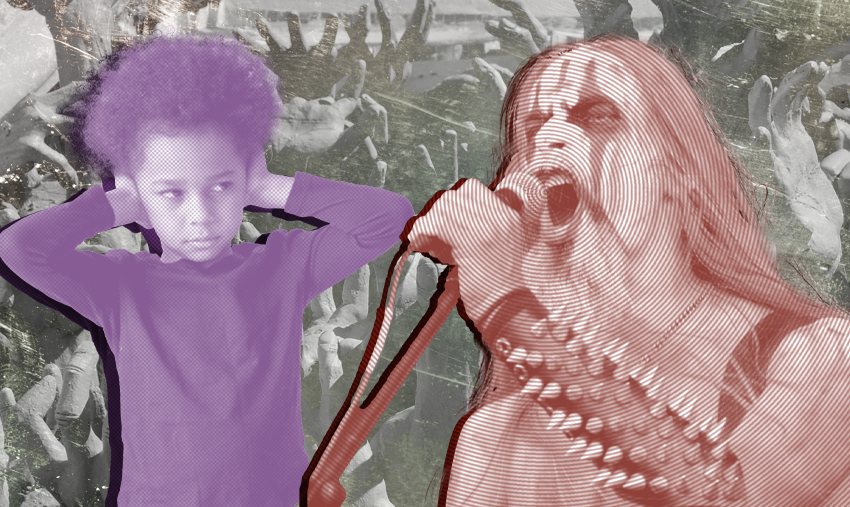Thinking of the children
‘Parental Advisory’ movement is older than J-Kwon (who is so old you’ve probably forgotten him)

Thirty-eight years ago today, some musicians were hauled in front of Congress by the Parents’ Music Resource Center – that group made up of the wives of senators and other male luminaries, led by future Second Lady Tipper Gore, that pressed for movie-style content ratings to keep their kids from hearing dirty lyrics. The PMRC was pilloried at the time (and Godwin’s Law’d, before that was a thing); and parodied or embraced by subversive types immediately, en route to becoming one of the most enduring and recognizable warnings/enticements that there ever was. Let’s take a look back at hand-wringing history …
They sort of had a point
By most accounts, the first song to draw the ire of the PMRC was Prince’s “Darling Nikki.” If you haven’t heard it for a while, the song is pretty explicit, detailing the proclivities of a “sex fiend” who lives among a wide assortment of all the latest toys – “everything money could buy.” It wasn’t the most graphic song ever, by any means – overtly sexed-up lyrics had been commonplace in the mostly underground punk/post-punk scenes for years, and let’s face it, the ‘70s in general were a deeply horny decade.
But this song (a) contained the line “Masturbating with a magazine” right in the first verse, and (b) appeared on an album, Purple Rain, that sat atop the Billboard 200 for twenty-four weeks, spawning the radio-friendly title track and “When Doves Cry,” and eventually amassing 13 million in album sales. In other words, the senators probably weren’t the only ones whose tween daughters were running around the house all, “Call me up whenever you wanna grind.” If you squinted just right, there was a problem to be solved.
They sort of didn’t have a point
The “Filthy Fifteen” list the PMRC first released to warn parents was fairly scattershot. Cyndi Lauper’s “She Bop” is all coy where “Darling Nikki” is candid, and calling “Dress You Up” an explicit song basically made Madonna say, “Hold my beer.” The songs cited for occult influence – Venom’s “Possessed” and “Into the Coven” by Mercyful Fate – probably did little more than provide free marketing to obscure, unintelligible bands. (and just by the way, how is occult influence dangerous to kids? Only the makers of Chick tracts know for sure.)
But the most ridiculous inclusion has to be Twisted Sister’s all-time favorite, “We’re Not Gonna Take It,” which apparently crossed some kind of violence line by saying “We’re right, we’re free, we’ll fight, you’ll see.” As frontman Dee Snider said in Newsweek’s oral history of the PMRC, “You talk about the music that was on the Filthy Fifteen, it’s easy listening by today’s standards. It’s more than ironic that in the movie Rock of Ages, the Parents Music Resource Center-esque group headed by Catherine Zeta-Jones sang ‘We’re Not Gonna Take It’ at the rock star!”
It didn’t work anyway
The PMRC eventually pushed the record industry to adopt the now-famous Parental Advisory label, and the first one went to that all-time obscene-speech bête noir, 2 Live Crew, whose Banned in the USA LP bore the high-contrast sticker on its 1990 release. The album and its lead single both made the Top 40.
A year later, the first chart-topping Parental Advisory album was an N.W.A. disc so explicit that we’d rather not type its title here (even they typed it backward!). This was followed, in 1991 alone, by two more explicit #1s – plus an unstickered one that’s basically called F.U.C.K. And thanks to Mom and Dad’s allowance money, the nation’s impressionable youngsters rocked out to every damn one of ’em. At least in the music business, no one thought of the children ever again.
